Business in Vancouver December 9-15, 2008; issue 998
visit Business in Vancouver online
New Regional Trust Offering Incentives to Lure Companies to Province’s North
Capital and training costs rebated by up to $10,000 per job created
Metro Vancouver businesses should consider the competitive and financial advantages on offer in central and northern B.C. during tough economic times, according to the head of Northern Development Initiative Trust.
The independent regional economic development corporation’s new $30 million Northern BC Business Advantage program unveiled at the end of September includes a direct Capital Investment and Training Rebate program that provides business with incentives for job creation.
Companies can receive up to $10,000 for each job created, according to Janine North, Northern Development’s CEO.
The program will rebate any combination of up to 5% of capital costs for buildings, equipment and machinery incurred by a business expansion or startup that creates at least two new full-time positions and/or covers third party and/or on-the-job training costs for new employees.
The business advantages touted by the region include lower business and energy costs, access to land and a northern transportation corridor linking markets in Asia with the U.S. Midwest.
“We felt it was time to put some of these competitive and business cost advantages on the radar screen of business down in the Lower Mainland and in other jurisdictions,” North said.
She added that the impetus behind the program came from the estimated 6,000 to 8,000 jobs lost in the region due to the flagging fortunes of the forestry and mining industries. The program is expected to create 3,000 jobs.
“They have a strategic goal of being a catalyst for 10,000 jobs over the next 10 years, but the Northern Development board realizes that local government and the Trust don’t create jobs. It’s business that creates jobs.”
Conifex Inc., a new forestry company, is the first to take advantage of the program. Two more companies, the BID Group and Asia Canada Forest Products Ltd. were announced in early December. Conifex will generate an estimated 260 jobs when it re-opens the former Pope & Talbot sawmill in Fort St. James.
“It was a very good opportunity for us, because we knew that the heavier lifting we had to do at the front end, we would have an offset against some of those costs through this program,” said Conifex CEO Ken Shields.
Once approved by Northern Development, companies have two years to finalize expansion plans, invest the capital and hire and train new workers, according to North. The rebate would be provided within two weeks.
“This isn’t the reason that a company would choose to move to northern B.C., but it’s certainly a way of saying the communities are open for business,” said North.
The program will operate until the money is gone, but North anticipates it will be spent within the next five years.
She added that the program’s structure was determined after consultations with the Canadian Federation of Independent Business, British Columbia Business Council, British Columbia Chamber of Commerce and northern businesses.
Businesses need to be involved in export-driven sectors of the economy to be eligible for the rebate.
“The wealth-creating side of the economy – manufacturing, resource processing, logistics, transportation – we ask that the product has an export focus,” said North. “It’s not necessarily an export out of the country, but an export out of our region.”
According to Shields, the rebate program gave Conifex the confidence to locate higher corporate functions in B.C.’s north, rather than run Fort St. James’ mill operations as a branch plant.
“There isn’t a pool of people experienced in these corporate functions in that community and this program allowed us to develop our own rather than rent others or locate in Vancouver,” said Shields. “There isn’t one cent made in the forest industry at Georgia and Granville.”
North said Victoria supports the program.
“They saw there being a place for the trust to be supportive of its communities in this way and supportive of business.”
She said the trust uses three performance measurements to determine its success:
- How much money can be drawn into the region?
- How many jobs can be created?
- How can revenue be increased?
The trust aims to inject $2 billion every decade into the 40 communities that fall under its auspices, according to North.
“That’s how you fire up an area of the province that is already the wealth-creating hub – not the consumer or retail hub like Vancouver – but the wealth-creating hub, and take it up a notch in a business environment that right now, and over the last couple of years, has not been really positive.”
Andrew Petrozzi
email: apetrozzi@biv.com


